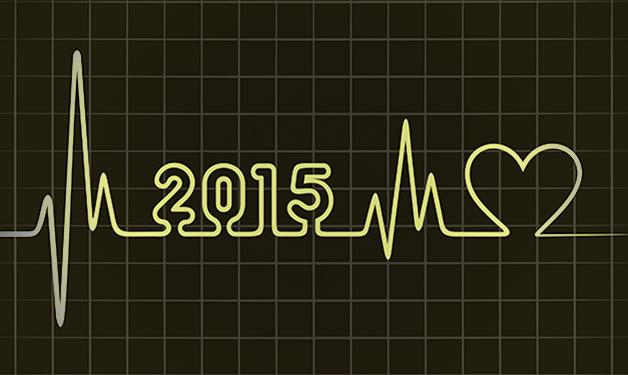
Health research helps us figure out what more we can do to keep our bodies and minds in top-top condition. In the spirit of New Year’s resolutions, here are some health tips from our researchers to keep you motivated, happy, and healthy!
Q: This year, should I adopt the mantra ‘nobody’s nerfect’?
A: Being perfect is unattainable and once you make peace with that, why sweat the small stuff, says Dr. Liisa Galea. “Spend time on things that make you happy and minimize the things that don’t make you happy – stop reaching for perfection and give yourself permission to enjoy your life – imperfections and all.” Read more
Q: Is now a good time to check and reduce my sugar intake?
A: “Sugar of all sorts (e.g. glucose, sucrose, fructose) hurt the body when ingested in large quantities and the problem is that we are eating too much of it too often,” says Dr. Keith Dawson. “We have made a serious error in the last 50 years in placing all the emphasis on fats, saturated fats, and trans fats while allowing for an unacceptable increase in carbohydrate intake (through sugars).” Read more
Q: Is skimping on sleep really bad for me?
A: “I would argue that quality sleep – both in terms of duration and continuity – is a cornerstone of healthy aging,” says Dr. Glenn Landry. “Growing evidence suggests chronic sleep durations of less than six-and-a-half hours are predictive of poor health and cognitive decline. … the benefits of getting at least eight hours of sleep each night are likely to be better health and cognitive function later in life.” Read more
Q: What good is exercise for my heart?
A: Dollar for dollar, there is no better preventative measure against heart attacks than exercising and stopping smoking, says cardiologist Dr. Saul Isserow. “Aerobic workouts help keep weight reasonable, lower cholesterol and blood pressure and, in general, make the heart live in a healthier systemic environment.” Read more
Q: How can exercise be as good for my brain as it is for my body?
A: Essentially, exercise reverses the pattern of mental decline commonly seen with aging and dementia, says Dr. Teresa Liu-Ambrose. “The magnitude of benefit [from exercise] that we’re seeing across these multiple outcomes exceed any sort of magnitude of benefit observed in pharmaceutical agents,” she adds. Read more
Q: Do I really need to drink eight glasses of water per day?
A: Not at all, according to Dr. Peter Neufeld. “We know that healthy adults can get by with far fewer than eight glasses, perhaps as little as three glasses a day indefinitely,” he says. “If you suffer from kidney stones, though, then generally speaking you should drink at least eight glasses (i.e. two litres) of water and probably more like 12 to help prevent more stones from forming.” Read more
Q: What are the benefits of meditation and mindfulness?
A: “A lot of research on mindfulness shows it to be helpful in many ways including, for example, being more present, feeling more positive emotions, being less emotionally reactive, reducing tendencies to dwell or worry, as well as improving brain function and immune system function,” says Dr. Mark Lau. Read more
Do you have a health or medicine question for our experts? Tweet it to @vchresearch or email us.


